East of England Ambulance Service workers say conditions are diabolical
- Published
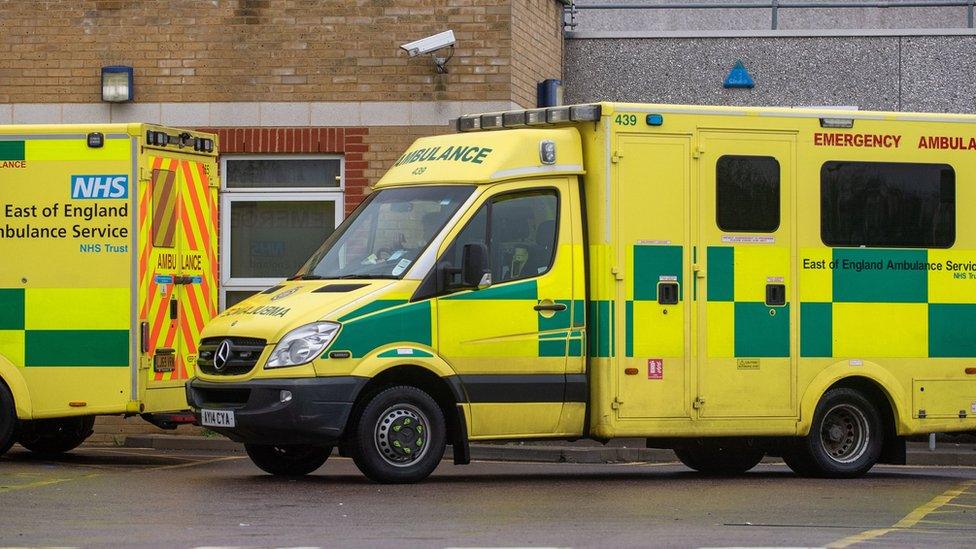
The East of England Ambulance Service serves the six counties of Beds, Cambs, Essex, Herts, Norfolk and Suffolk
Patients' lives were being put at risk due to waiting outside hospitals "for hours on end", ambulance workers said.
Unionised paramedics, technicians and call takers from the East of England Ambulance Service will be able to vote on strike action over pay next week.
Employees have described working conditions as "diabolical" and said crews were "at the point of burn-out".
The East of England Ambulance Service NHS Trust said it was "working hard" to improve "wellbeing support".
The union Unison, which has some 2,000 members in the service, said it was angry with the government's 4% pay award and was asking for an above-inflation pay increase.
Inflation, as measured by the consumer prices index, was 10.1% in the year to September.
An ambulance queue at Norfolk and Norwich University Hospital was filmed
Ballots, posted to all Unison and GMB members, will close by the first week of December, raising the possibility of strike action before Christmas.
In a document entitled East of England Ambulance Staff Speak Out, workers made a series of accusations.
They said patients were "suffering from thirst and becoming soiled" while waiting to be admitted to hospital and that "critical patients' lives were being put at risk" by waiting outside hospitals "for hours on end".
They also claimed control centres were "swamped by an insurmountable number of calls".
The workers said crews were being threatened and assaulted, not getting meal breaks and equipment was running out of power.
'Haemorrhaging staff'
Glenn Carrington, Unison branch chairman for East of England Ambulance Service workers, said: "The service is haemorrhaging staff... it's like something out of a dystopian movie."
Last month, the trust recorded the slowest response times in England.
It took ambulances up to nine hours and 10 minutes to respond to 90% of urgent calls, when the target was two hours.
Lola McEvoy, GMB organiser, said workers were "daily exposed to trauma and distressing situations".
She added that members had "no choice but to vote for industrial action" and had been "pushed too far".
Tom Abell, chief executive of the East of England Ambulance Service NHS Trust, said: "We have been experiencing very high demand for some time now, and continue to be challenged by lengthy handover delays at hospitals.
"We recognise the impact this has on our staff, and are working hard to further improve the wellbeing support we provide to them.
"We are aware that Unison is balloting. We will ensure we continue to provide a safe service for our communities."
A Department of Health and Social Care spokesperson said: "We are giving over one million NHS workers a pay rise of at least £1,400 this year, as recommended by the independent NHS Pay Review Body.
"Industrial action is a matter for unions, and we urge them to carefully consider the potential impacts on patients."

Find BBC News: East of England on Facebook, external, Instagram, external and Twitter, external. If you have a story suggestion email eastofenglandnews@bbc.co.uk, external
- Published14 October 2022
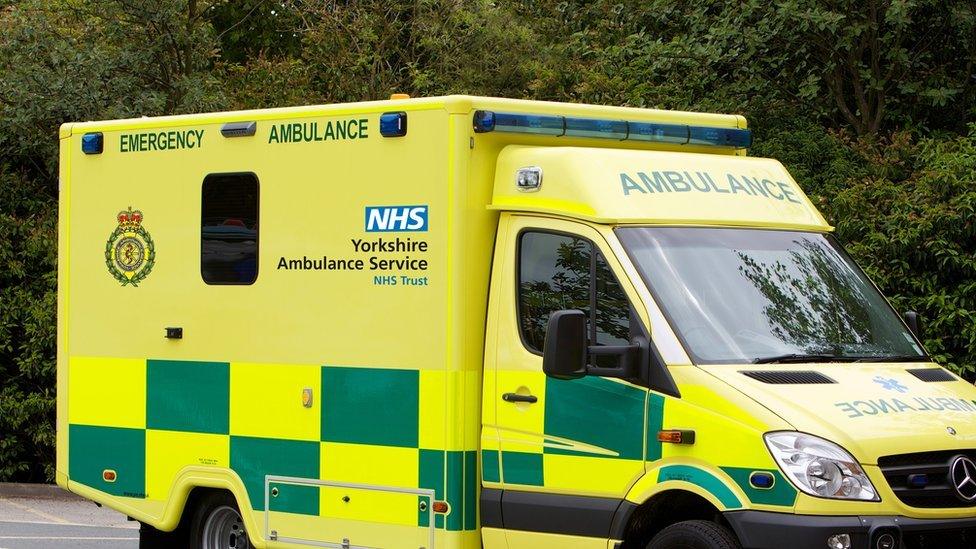
- Published6 October 2022
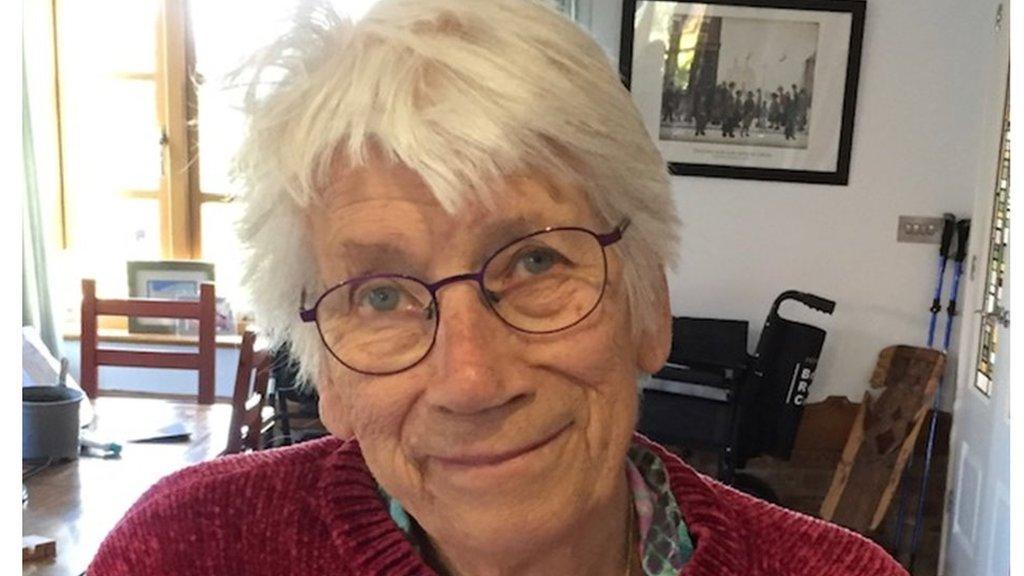
- Published4 October 2022
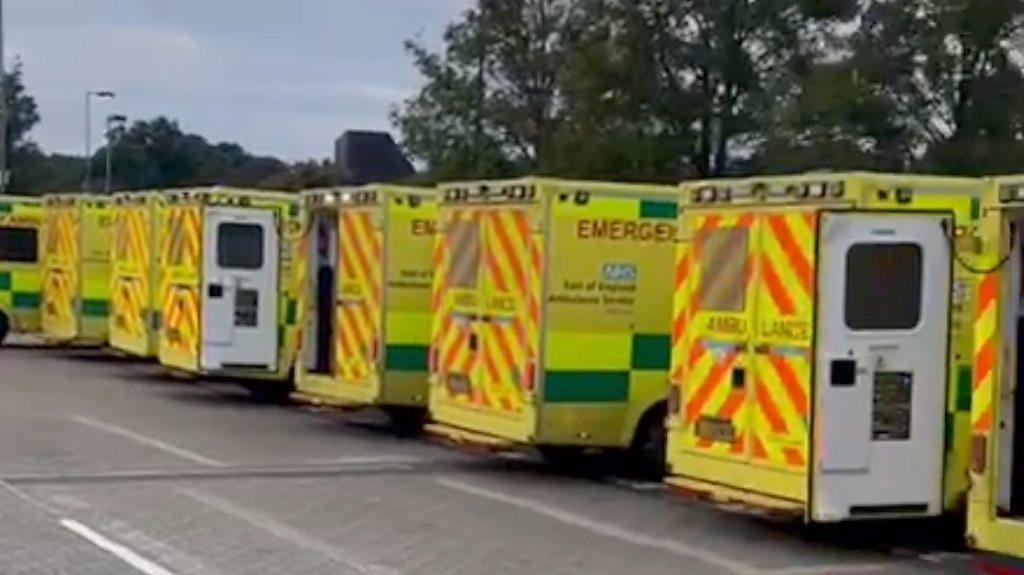
- Published3 October 2022
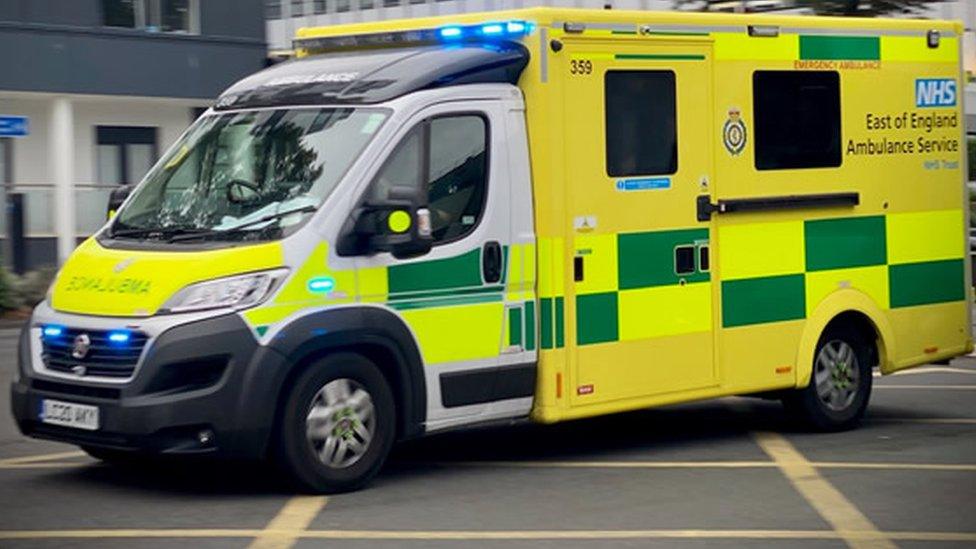
- Published6 September 2022
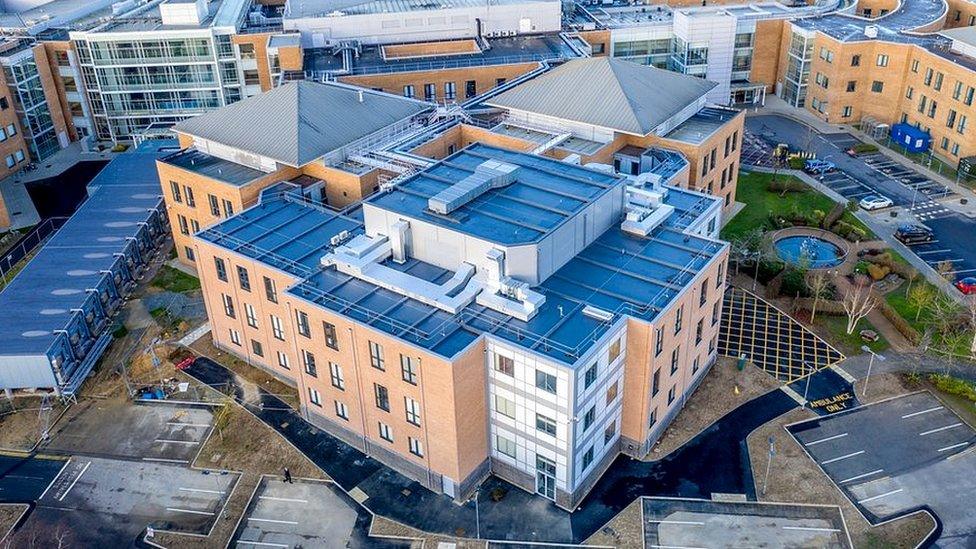
- Published12 May 2022
